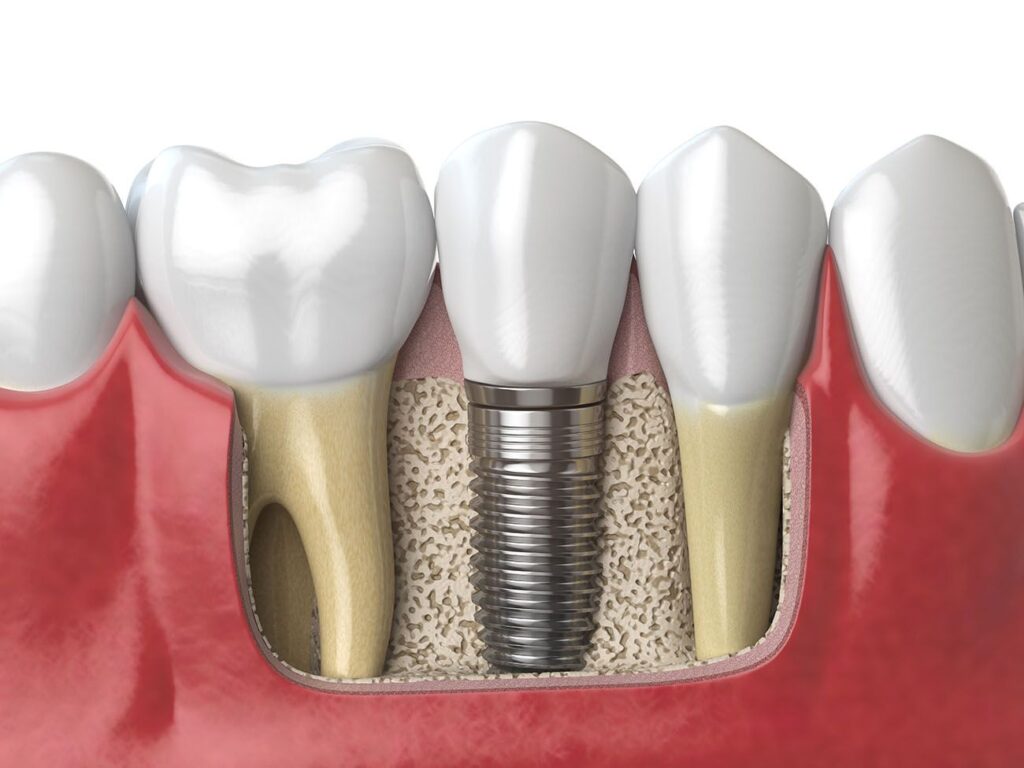If you lose one or more teeth, you might struggle with speaking, eating, and other oral abilities. You might also feel self-conscious about gaps left in your smile in the wake of tooth loss. You can work with your dentist to replace missing teeth and restore oral functions and aesthetics.
But many removable tooth replacements will not protect against potential damage to your jawbone caused by tooth loss. Dental implants offer highly comprehensive restoration that preserves the jaw in a way that dentures alone cannot.
Your dentist can let you know if implants will suit your oral health needs when you schedule a dental consultation. In the meantime, read on to learn details about how missing teeth will affect your jawbone health and how dental implants can help.


How Does Tooth Loss Affect Your Jaw?
A healthy dental patient has a full set of teeth, and each tooth features a root that extends below the gumline to reach the jaw. The tooth’s root stimulates the jawbone, which keeps it strong and healthy.
If you lose a tooth, the jawbone loses this stimulation from the tooth root. In the tooth root’s absence, the jawbone will begin to deteriorate. This can lead to further shifting of remaining teeth as well as weakening of the jaw. You can notice a shrunken appearance affecting the facial structure over time.
You cannot stop this effect of tooth loss on your own. Some removable tooth replacement treatments can restore oral function but will not address jawbone deterioration that happens below the gumline. You will need to talk to your dentist about more beneficial restorative solutions like dental implants to protect your jaw.
How Do Dental Implants Protect Jaw Health?
Dental implants feature a titanium post anchor inserted into the jaw by a dentist. The anchor fuses with the jawbone while you recover from this oral surgery. This creates a strong foundation to support prosthetic teeth for this restorative dental treatment.
The anchor of the implant also serves as a replacement for the missing tooth root. It stimulates the jawbone once again to stop it from deteriorating, a feat that removable options cannot do. This way, you can preserve your jawbone health while restoring your smile.
You can look forward to a reliable, durable tooth replacement that will last for twenty years or longer with proper care. Learn more about aftercare for your implants by consulting with your dentist.
Can My Jaw Sustain Dental Implants?
Not all dental patients can benefit from tooth replacement through dental implants. Your dentist will evaluate your existing dental structure prior to starting this treatment to ensure your eligibility and maximize the success of the anchor fusion process.
In order for the fusion to occur properly, you need enough healthy bone in your jaw. If you suffer from bone loss due to missing teeth, you might not successfully sustain an implant. In this case, a dentist might suggest a bone graft to add stability to the jaw that may ultimately support an implant.
Your dentist can check the health of your jaw using x-ray imaging taken during a consultation. Book this dental appointment as soon as possible to begin your tooth replacement journey.
